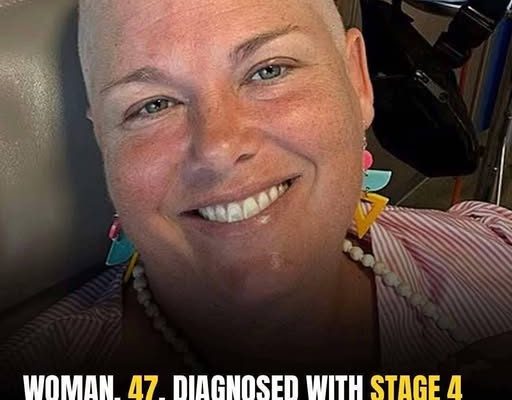For years, Susan Schmidt lived the kind of life that kept her constantly moving — balancing her career, her home, and raising her two daughters in Brisbane. She was 45, fit, and active, the sort of person friends described as “always on the go.” But in September 2023, her world collapsed when doctors delivered a devastating diagnosis: stage 4 bowel cancer.
It wasn’t just the diagnosis that stunned her. It was the realization that the disease had been creeping silently through her body while she dismissed the warning signs as ordinary fatigue, stress, or side effects of daily life.
Today, Susan shares her story not for sympathy but to sound the alarm: the smallest symptoms, if ignored, can become deadly.
The First Signs — and the Easy Excuses
Susan’s earliest warning came months before her diagnosis. She began experiencing relentless exhaustion. Tasks she once did effortlessly became uphill battles.
“I’d drive my daughter to rowing practice and then, halfway home, I’d have to pull over to nap in the car,” she recalled. “That’s not normal. That was my first red flag. But I brushed it off. I thought, ‘I’m busy, I’m tired, I’m getting older.’ I didn’t want to make a fuss.”
That decision, she admits now, nearly cost her the chance for early treatment.
When Travel Masked the Symptoms
A trip to France later that year brought another sign. For the first time in her life, Susan experienced persistent constipation. She assumed the culprit was rich French cuisine and irregular routines while traveling.
“It seemed harmless,” she said. “I blamed the food, the wine, even jet lag. Cancer didn’t cross my mind.”
But once she returned to Brisbane, things escalated.
A Pain Like Nothing Before
One night, Susan was struck by crippling abdominal pain. It was accompanied by vomiting and diarrhea that lasted for hours. The agony, she said, was worse than childbirth.
“I honestly thought it was salmonella from being around my horse,” she explained.
She went to the hospital, desperate for answers. Doctors ran tests but reassured her that she was fine. “Nobody was looking for cancer,” she said. “I was sent home with nothing more than a pat on the back.”
But Susan’s instincts told her something was seriously wrong.
The Diagnosis That Changed Everything
After further tests and specialist referrals, the truth emerged: stage 4 bowel cancer. The disease had already spread, making it incurable.
“The words hit me like a freight train,” Susan said. “I thought of my daughters, of all the moments I still wanted with them. But the doctors were clear — we weren’t talking about a cure anymore. We were talking about time.”
A New Mission: Awareness and Advocacy
Susan is determined to use that time wisely. While she continues treatment — and even plans to restart chemotherapy after an overseas trip — her mission has shifted toward awareness.
“People don’t talk about bowel habits,” she said bluntly. “Who wants to? But that silence is killing people. Bowel cancer is one of the deadliest cancers, not because it can’t be treated, but because people ignore the early signs. By the time they take it seriously, it’s often too late.”
Her advice is simple: never dismiss changes in your body, no matter how minor they seem. “Even if your blood work comes back normal, even if the doctor tells you it’s stress or diet — push for answers. You know your body better than anyone.”
Turning Pain Into Purpose
Susan has since founded The Floozie Foundation, a nonprofit dedicated to supporting cancer patients and their families. The organization provides emotional support, resources for treatment, and a community where people can share their stories without shame or stigma.
“It’s about making sure no one feels as alone as I did when I first heard those words,” she explained. “It’s about giving families hope and tools to navigate the nightmare that is cancer.”
Her openness has resonated with thousands, particularly because she speaks so candidly about a subject most people shy away from.
“Talking about bowel movements isn’t glamorous,” she admitted. “But if it saves someone’s life? Then it’s worth every uncomfortable conversation.”
Looking Ahead
Despite the prognosis, Susan remains focused on living fully. She continues to plan trips with her daughters, cherishes everyday moments, and treats each day as a gift.
“The goal now is to stay well for as long as I can,” she said. “I don’t want my girls to only remember me as sick. I want them to remember the fun, the laughter, the adventures we still had together.”
Her journey is a sobering reminder of how fragile health can be, but also how resilience and courage can turn tragedy into impact.
“Stage 4 cancer may take my life,” Susan said quietly. “But it won’t take my voice. If sharing my story helps even one person catch their cancer early, then I’ve done something worthwhile.”



